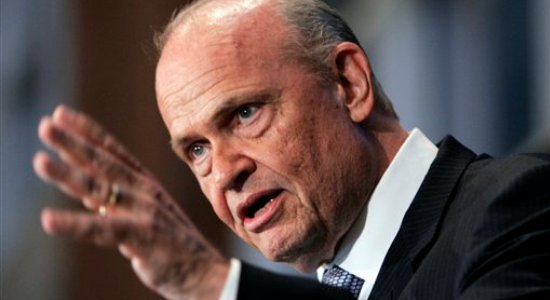Robin Hood is back on the big screen in his umpteenth adaptation and he’s not only fighting social injustice by robbing the rich and giving to the poor, he’s fighting it by forcing English King John the cruel to sign the Magna Carta. More on that later. For now, let’s stick with the redistribution of wealth by banditry.

People love that idea. And because they do, Robin has had a massive influence on popular culture because the implicit anti-establishment message in his story can be used as a device to criticize society or sell almost any social movement, legislation or outright criminal activity in modern societies that have no relation to the brutal feudal times in which his legend originated. The result, the Sherwood Forest outlaw can be anything one wants him to be.
A Robin who “robs the rich to give to the poor” can be that mythical Marxist revolutionary or populist hero righting the wrongs of capitalism for the oppressed proletariat — even if he happens to be nothing more than a mass murderer like Che Guevara:

or a common one like Jesse James

or the 1930s bank robber Pretty Boy Floyd

Woody Guthrie lionized in song:
Many a starving farmer
The same old story told
How the outlaw paid their mortgage
And saved their little homes
Looked at another way, a Robin who’s robbin’ the rich of onerous taxes they have forced on productive workers to support their bloated government might be one of Grover Norquist’s Americans for Tax Reform conservatives.
Toss in Robin’s opposition to the oppressive King John, who has usurped the crown of his brother Richard I and sicced ye Sheriff of Nottingham on those who question his authority to enact ruinous taxes, and you have the makings of America’s revolutionaries who went to war over the legitimacy of British taxation sans representation.
Emphasize the ruling Norman oppression of conquered Saxons that is themed in Ivanhoe, the 1800s Sir Walter Scott book that popularized the Robin Hood character in the first place, and you’ve got a story about racism and intolerance even if Al Sharpton wouldn’t agree ’cause they’re all white folks.
That’s why different versions of the story among the scads that have been filmed through the years have been used by their makers to touch different cultural nerves.
I grew up watching “The Adventures of Robin Hood,” starring Richard Greene during the 50s without ever realizing its stories about the exploitation of serfs and ill gotten capitalist wealth were written by blacklisted communist Hollywood writers who were spreading Soviet agitprop.

Archie Duncan, Bernadette O'Farrell, Richard Greene, and Richard Coleman
Neither did I know that Robin’s paranoia about betrayal to the authorities was what the pseudonymed writers of those stories worried about lest their propaganda jig be up. “The Adventures of Robin Hood gave us plenty of opportunities to comment on issues and institutions in Eisenhower-era America,” admitted writer Ring Lardner, Jr.

“The Story of Robin Hood and his Merrie Men” was also done during the 50s but its maker, the anti-communist Walt Disney, emphasized the ruinous taxation imposed by a totalitarian King John at a time when America’s top bracket was 90%.

1938’s “The Adventures of Robin Hood” starring Errol Flynn is the only version I’ve seen that really focuses on the oppression of the Saxons by the French speaking (yes, you read that right) Norman rulers who won the Battle of Hastings.

The Normans were really French speaking Vikings. And the England William of Normandy and his cousin Gauthier Giffard fashioned was one in which the Saxons and other subjugated peoples like the Welsh sucked hind teat in ways we today cannot begin to imagine. Against that blackness, robbing those who had taxed the common man to the edge of existence in many cases was both moral and necessary.

Translation of plaque at Castle Giffard, Normandy: Gauthier Giffard, Lord of Longueville carried the Banner of the Duke William. Departed from this land to the Battle of Hastings accompanied by his two sons, one of whom became the Duke of Buckingham.
Over time, Norman nobles started getting the short end of the stick. That boiled over under the harsh and inept rule of King John (known as “Soft Sword” for his military incompetence) to the point that the barons forced John to sign a bill of rights against absolute royal power known as the Magna Carta.
What I’ve never seen depicted is that those rights only applied to the nobility, that John refused to honor them, that he had the leaders of the Magna Carta barons killed, and that England plunged into years of bloody war between the barons and the king.
Did Robin Hood really exist? Certainly not as he’s been portrayed — if at all. But that doesn’t really matter, because the real importance of Robin Hood is that he’s an inspiration for taking a stand against injustice however one defines it.
COMMENTS
Please let us know if you're having issues with commenting.